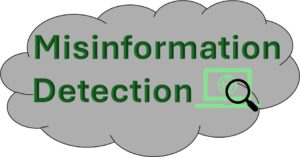 The rise of social media platforms as Online Health Information Sources (OHIS) has increased the spread of health misinformation in cyberspace. The rapid dissemination of false or misleading health information, particularly in public health, can have severe consequences. Misinformation not only endangers public health but also poses significant cybersecurity risks, including eroding trust in credible sources, enabling phishing attacks, and heightening the impact of cyber threats during crises.
The rise of social media platforms as Online Health Information Sources (OHIS) has increased the spread of health misinformation in cyberspace. The rapid dissemination of false or misleading health information, particularly in public health, can have severe consequences. Misinformation not only endangers public health but also poses significant cybersecurity risks, including eroding trust in credible sources, enabling phishing attacks, and heightening the impact of cyber threats during crises.
Misinformation can escalate cyber threats, facilitate phishing and social engineering attacks, and compromise national security by misleading the public and causing confusion. It can delay incident responses, distort public perception during cyber incidents, and jeopardize data privacy by deceiving individuals into sharing sensitive information. Real-time detection through automated systems is crucial for mitigating these risks. This research aims to address misinformation using advanced techniques like Natural Language Processing (NLP), Knowledge Graphs, and Semantic Reasoners, with a particular focus on strengthening cybersecurity.
We have built a comprehensive framework to detect, quantify and combat misinformation using AI techniques like NLP, Knowledge Graphs, and Semantic Reasoners.
Project Members
Faculty: Dr. Karuna P Joshi
Students: Ommo Clark
Publications
- O. Clark, K. P. Joshi, and T. Reynolds, “Global Relevance of Online Health Information Sources: A Case Study of Experiences and Perceptions of Nigerians“, AMIA 2024 Annual Symposium, November 2024.
- O. Clark, T. Reynolds, E. Ugwuabonyi, and K. P. Joshi, “Exploring the Impact of Increased Health Information Accessibility in Cyberspace on Trust and Self-care Practices“, The 2024 ACM Workshop on Secure and Trustworthy Cyber-Physical Systems (SaT-CPS ’24), June 2024